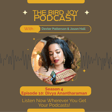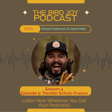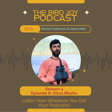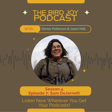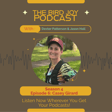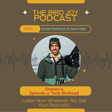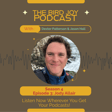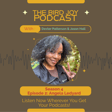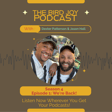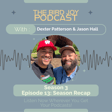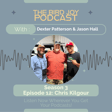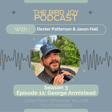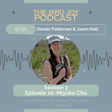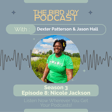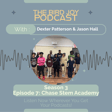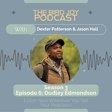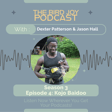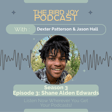
Joy, Justice & Birding with Corina Newsome
We’re celebrating Black Birders Week with a very special guest: Corina Newsome — wildlife biologist, conservation scientist, and one of the original co-organizers of the first Black Birders Week in 2020. In this inspiring episode, Corina joins Dexter and Jason to talk about her journey from zookeeper to passionate advocate for environmental justice, and how she’s helping reshape who feels welcome in the outdoors.
Corina reflects on the moment she fell in love with wildlife, the movement-building behind Black Birders Week (founded by Black AF in STEM), and how becoming a mother is deepening her connection to nature. This episode is full of heart, humor, and real talk—from favorite birding snacks and awe-filled moments to the ongoing work of creating inclusive spaces in science and nature. It’s a celebration of joy, justice, and unapologetic presence in wild places.
💚 Follow Corina Newsome
Instagram: @hood_naturalist
LinkedIn: Corina Newsome
Website: www.corinanewsome.com
🌍 Learn More & Get Involved
BIPOC Birding Club of Wisconsin: bipocbirdingclub.org
In Color Birding Club: incolorbirding.org
🎧 Subscribe to Bird Joy wherever you listen to podcasts and follow @thebirdjoypod for more episodes celebrating birds, community, and belonging.
